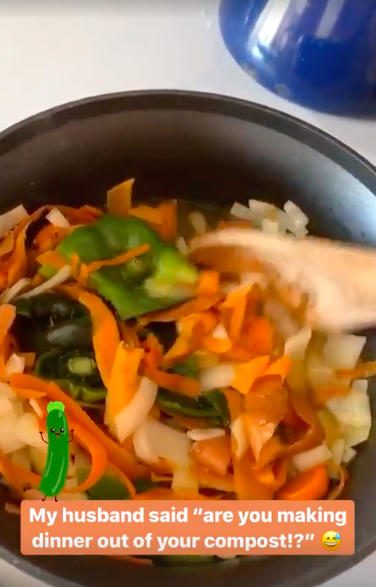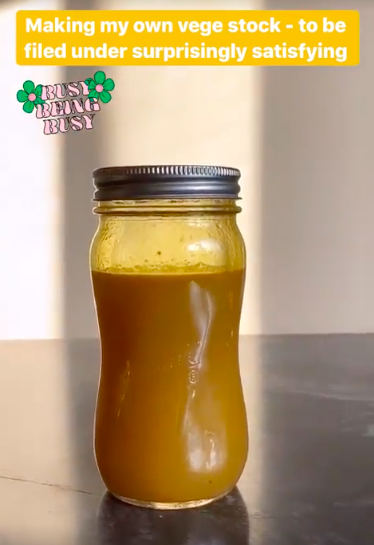A few weeks ago I talked about New Years resolutions, our aspirations of becoming environmentally conscious, and where the two overlap. The week after I discussed one common way that people try to become mini “eco leaders” in their own life: by buying ‘certified’ green or responsible products, such as non-GMO, Fair Trade, certified B corporation, and many, many, MANY more.
This week I want to talk about another one of our go-to’s when we look around and realize we want to take that step and become a more sustainable us: COMPOSTING!
Yes, that golden ‘C’: C for Cool, for Creative, for Cycles, for COMPOST!
The idea for composting is simple and brilliant, because it copies the cycles of our planet.

The basic is this: composting is instigating the rotting of organic waste in order to break it down and recycle it into plant fertilizer (a.k.a compost). As all sustainable agricultural practices do, this system simply mimics natural decomposition that is constantly occurring in nature. The only differences are that we isolate the waste so that we can speed up the process and make sure we get to keep all of the final result. Start to finish, humans have control over this natural cycle that brings life to death, death to rebirth, and so on.
su-re.co is actively involved in composting initiatives. Most of our team (including myself) composts their natural waste, some in very innovative ways. su-re.co is also using Bali’s biggest community composting company, Urban Compost, as part of our case study for the European Commission’s LANDMARC project.

At my house, we actually compost our natural waste thanks to Urban Compost, who supplied us with a bucket that we fill up with our scraps.
Here's our compost been here, fresh with the day's food scraps.
Once a week, they pick up our waste, turn it into compost, and give some back so we can make our garden sing!

If you’re in Bali, I highly recommend them for a simple, elegant solution to the food waste that piles up when you cook a lot (like I do).
However, it’s not always that simple. It took us a while to settle on Urban Compost. Before that, we used to fill half a dozen containers a week which I would transport 15 minutes to my parent’s house whenever I could. It was a messy system, to say the least, and we knew we needed a change.
Urban Compost has solved a lot of these problems, but definitely not all of them. One of my roommates has a huge phobia of all things tiny, slimy, and wriggly, so when we get maggots in our bucket — a GOOD SIGN in compost — he gets a little squeamish. I mean, who can blame him?! They have no visible faces, which is what gets me. Once our compost is nearly full, we start to see dozens of those bad boys, and we normally squeal each time we open the bucket to add more food waste.
Still, nobody has ever thought of getting rid of it and just throwing our waste into landfill again, because it just feels so good to know that your food scraps are feeding these tiny little critters, who are helping break it down so it can be digestible for plants! It’s a beautiful cycle, and so even through the squeals, there are definitely major smiles on all our faces whenever we see these weird worms.
Even so, we know that not everyone has an accessible and affordable Urban Compost near them — especially in other parts of the world.
So what are the other solutions?
There’s tons of in-house composting ideas, including so many resources on the internet to help you get started. Our own Dr. Takeshi Takama, su-re.co’s founder and CEO, posted a how-to blog on Ogakuzu composting, which you could easily set up in your own home or apartment within 3 minutes! He also wrote a follow-up up blog after three weeks detailing the progress of his compost and offering more advice.
So there are easy composting ideas out there. If Tak's doesn't work for you, a quick google search reveals endless opportunities. But composting isn't the only option.
One of my favorite food scrap tips come from ecological.ly, an eco-instagram run by the sweet, smiling, and outspoken Jessica, actually a classmate of mine at UCLA.

Jessica from ecological.ly. Image taken from her Instagram post about why you shouldn't use bubble wrap and how to best dispose of it
Each post is different, but they follow common themes: shopping pre-loved goods, sourcing products locally, updates on her pet reptiles and amphibians, and facts about fast fashion and how to avoid it. Her story ‘highlights’ are even more diverse, with 47 different collectives on facts and visuals from all different areas. Check them out below!

My personal favorites are ‘dart frogs’, ‘dye’, and ‘Cor’, which is all about her lovely turtle who loves cuddles!
Of course, she has numerous tabs about compost, specifically, but that's not all. ‘Dye’ and ‘food waste’ offer some novel ways to use your scraps!
Jessica is a huge fan of natural dyes, often showcasing the ways in which she repurposes avocado pits and other food scraps in order to make beautifully tie-died clothing!

Making goodies out of green scraps is another favorite of hers, and she has information and tutorials in both her stories and posts for veggie broth, apple cider vinegar, DIY-cleansers, and more!
Veggie broth: before & after!
Regrowing veggies from their stems is one on my to-do list. Jessica practically created an entire garden out of putting in soil what she would normally compost, getting to grow her own lettuce, spring onions, and more in that simple and easy way. This is definitely one of my favorite tips, and look at how beautiful her lettuce heads are!

Maybe I'll start working on this and update you guys on my progress! It might be a little trickier here in Bali, where we have an endless amount of bugs to deal with, but I'd love to give this one a go.
“Progress > perfection”, Jessica reminds us in her bio.
Little steps that stick matter much more than big gestures that falter. Take it slow, and if composting isn’t right for you, that’s OK! If you don’t have time to make natural dyes or your own veggie broth, that’s fine too! Find your way to integrate sustainable practices into your life. Find a resolution that works for you, and that will be the most powerful of all.
That’s all for me this week! Feel free to add comments or contact me if you want more tips or links regarding small-scale composting or anything else!:)








Comments